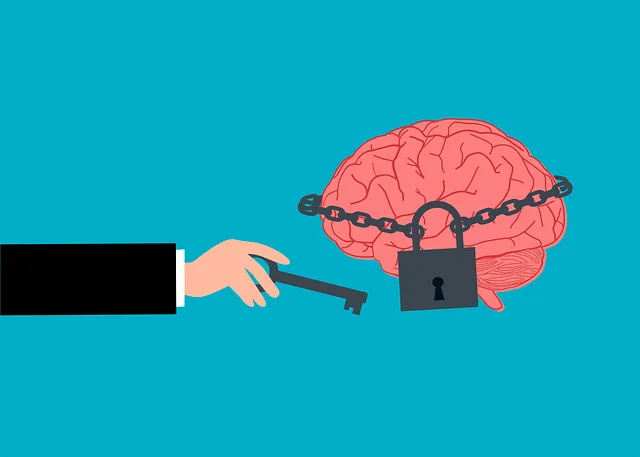The Wheat Ridge Kaiser Permanente psychiatry reviews emphasize resilience as a key component of mental well-being, highlighting its role in overcoming life's challenges. The RFM (Resilience, Flexibility, Mastery) model offers a structured approach to building resilience by leveraging individual strengths and positive factors, enhancing stress coping abilities. Empathy-driven strategies within this framework promote emotional healing and strengthen connections. Regular engagement in RFM activities improves self-esteem, adaptability, and fosters a growth mindset, leading to improved mental health outcomes. The reviews present compelling evidence of tailored resilience-building exercises' positive impact on patient outcomes, integrating innovative therapeutic strategies into standard care. This approach revolutionizes psychiatry practices by addressing anxiety relief and emotional intelligence, empowering individuals with coping mechanisms for long-term resilience.
“Resilience is a powerful tool in navigating life’s challenges, and RFM (Recovery, Flexibility, and Mastery) exercises have emerged as an effective approach to building mental fortitude. This article explores the integral role of RFM in resilience building, with a focus on its positive impact on mental health and well-being. We delve into a case study from Wheat Ridge Kaiser Permanente’s psychiatry reviews, offering practical insights. Additionally, we provide guidelines for designing and implementing these strategies, empowering individuals to embrace personal growth through RFM.”
- Understanding RFM and its Role in Resilience Building
- The Impact of RFM on Mental Health and Well-being
- Wheat Ridge Kaiser Permanente Psychiatry Reviews: A Case Study
- Designing Effective Resilience-Building Exercises
- Implementing RFM Strategies for Personal Growth
Understanding RFM and its Role in Resilience Building

Resilience is a crucial aspect of mental well-being, enabling individuals to navigate life’s challenges and bounce back from adversity. At Wheat Ridge Kaiser Permanente psychiatry reviews highlight the growing importance of resilience as a key factor in overall health. One effective framework for fostering resilience is the RFM model—a structured approach that focuses on Strengths, Resilience Factors, and Mental Health.
The RFM model serves as a powerful tool in both clinical settings and public awareness campaigns development. By identifying individual strengths and building upon them, while also cultivating positive resilience factors, this method enhances an individual’s ability to cope with stress and adversity. Moreover, integrating empathy-building strategies into the process encourages emotional healing processes, fostering deeper connections and understanding among individuals.
The Impact of RFM on Mental Health and Well-being

The practice of RFM (Resilience, Flexibility, and Mastery) exercises has gained significant attention in the field of mental health, as evidenced by Wheat Ridge Kaiser Permanente psychiatry reviews. These exercises are designed to bolster emotional well-being promotion techniques and provide crisis intervention guidance for individuals navigating stressful situations. By fostering resilience, participants develop a heightened ability to adapt to challenges, enhancing their overall mental fortitude.
Research indicates that regular engagement in RFM activities contributes to self-esteem improvement, enabling individuals to confront adversity with greater equanimity. The techniques encourage a mindset shift from seeing obstacles as insurmountable barriers to perceiving them as opportunities for growth and learning. This transformation not only enhances coping mechanisms but also promotes a deeper sense of control over one’s emotional responses, leading to improved mental health outcomes as per Wheat Ridge Kaiser Permanente psychiatry reviews.
Wheat Ridge Kaiser Permanente Psychiatry Reviews: A Case Study

The Wheat Ridge Kaiser Permanente Psychiatry Reviews serve as a compelling case study highlighting the impact of tailored resilience-building exercises on patient outcomes. This comprehensive evaluation showcases how integrating innovative therapeutic strategies into standard care can significantly enhance mental health services. The review’s findings underscore the importance of addressing anxiety relief and emotional intelligence as cornerstone elements in fostering resilience among patients.
By analyzing patient experiences and treatment responses, the case study reveals that structured programs aimed at developing public awareness campaigns around mental health can lead to substantial improvements in emotional well-being. These exercises not only empower individuals with coping mechanisms but also encourage a deeper understanding of their emotional intelligence, ultimately contributing to long-term resilience. The success of this initiative demonstrates the potential for revolutionizing psychiatry practices by incorporating evidence-based interventions that cater to the holistic needs of patients.
Designing Effective Resilience-Building Exercises

Resilience-building exercises are a vital component of mental health care, and designing effective programs requires careful consideration. At Wheat Ridge Kaiser Permanente, psychiatry reviews highlight the growing need for such initiatives, especially in fostering inner strength development among patients. One key aspect is tailoring activities to individual needs; what works for one person might not be suitable for another. Therefore, exercises should encourage self-awareness and emotional regulation while allowing individuals to explore their coping mechanisms.
Compassion cultivation practices, for instance, can be a powerful tool in building resilience. Encouraging patients to engage with mindfulness techniques and cultivate empathy towards themselves and others can significantly enhance their ability to navigate challenging situations. Additionally, integrating risk management planning into these exercises empowers mental health professionals to equip individuals with practical strategies to mitigate potential risks, ensuring a more comprehensive approach to mental well-being.
Implementing RFM Strategies for Personal Growth

Implementing RFM (Resilience, Flexibility, and Mindfulness) strategies is a powerful approach to personal growth, especially in navigating the challenges of modern life. These techniques, often showcased through the Wheat Ridge Kaiser Permanente psychiatry reviews, emphasize self-care and emotional resilience as key components of mental wellness. The RFM model encourages individuals to develop coping mechanisms that enhance their ability to handle stress, anxiety, and trauma, thereby fostering better mental health outcomes.
Through regular practice, one can improve emotional regulation, a vital aspect highlighted in the Mental Wellness Podcast Series Production. By integrating mindfulness exercises into daily routines, individuals gain better mood management skills, enabling them to respond calmly and adaptively to life’s ups and downs. This proactive approach not only prevents mental health decline but also empowers people to lead more fulfilling and balanced lives.
Resilience is a key component of mental health and well-being, and the RFM model offers a structured approach to enhancing it. As illustrated by the Wheat Ridge Kaiser Permanente psychiatry reviews, integrating resilience-building exercises into personal growth strategies can lead to significant improvements in coping mechanisms. By understanding the impact of RFM on mental health, individuals can design effective exercises tailored to their needs. This article has provided valuable insights into the power of resilience and practical steps for implementation, encouraging readers to explore and embrace these strategies for a more robust and fulfilling life.






